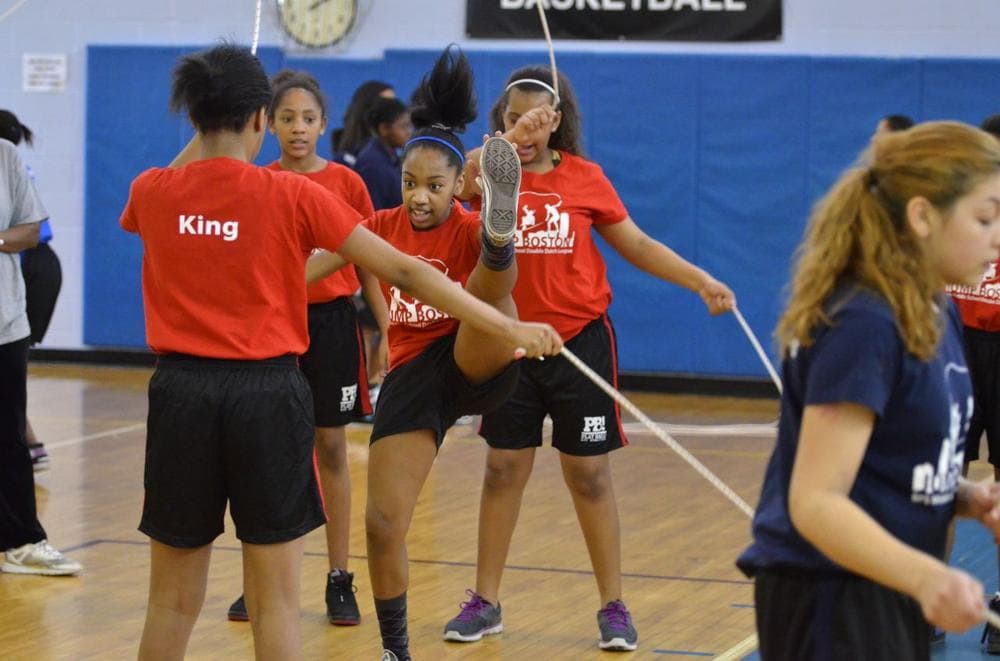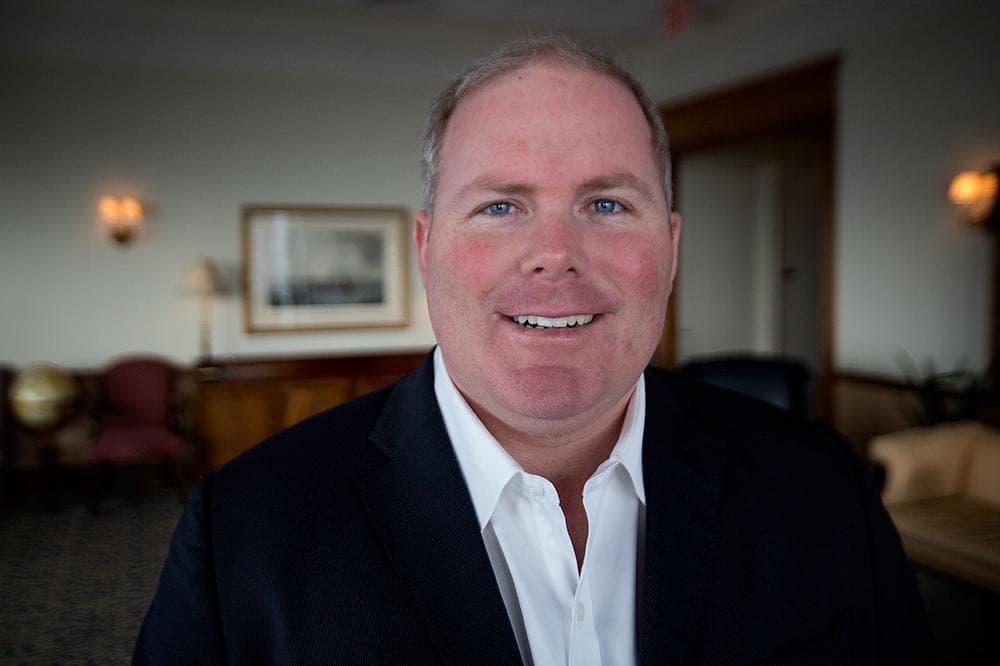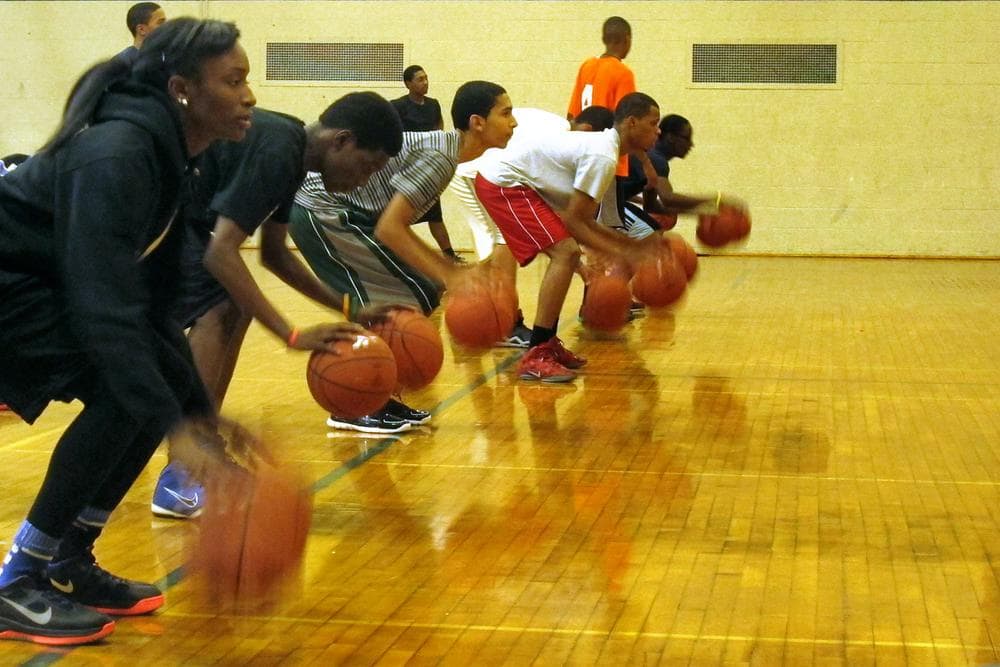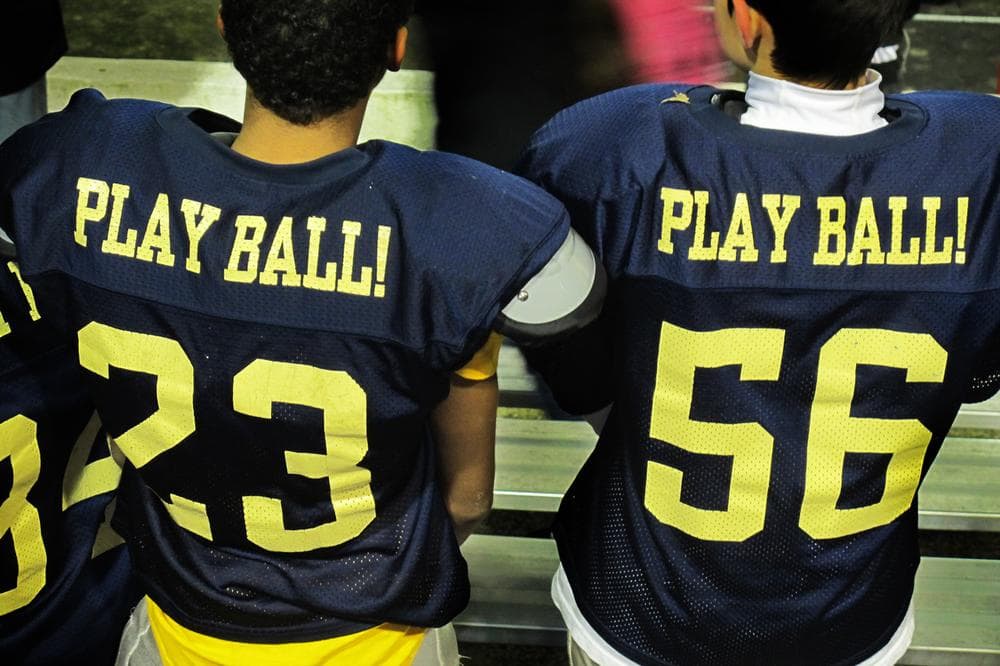Advertisement
How Boston Public School Sports Have Improved In 4 Years
Resume
BOSTON — Imagine softball players practicing in an alley strewn with broken glass, soccer teams scrimmaging on a field without a goal, and track teams swapping sweaty shirts at meets because there weren’t enough uniforms to go around.
Those are just a few of the details that emerged from investigative reporter Bob Hohler’s 2009 Boston Globe series on the state of sports in Boston Public Schools. Hohler says those stories are some of the most important he’s told in 25 years on the job.
"This is what we do as news organizations," Hohler said. "What we do is hold these public institutions accountable, and if ever in your career you can make a difference, it's just the most rewarding thing."
Hohler spent a year visiting every school and every sport in the system. He found that many of the problems came down to money. The city was spending just $1,700 per football team, while places like Lincoln-Sudbury were spending close to three times that amount.
In many suburban communities, pay-to-play fees that boost sports budgets have been in place for years, but Boston Schools Superintendent Carol Johnson says that's not a viable option in Boston.

"In a school community like ours, where almost 75 percent of our families live below the poverty level, charging fees may also be a disincentive to participate," she said, adding that the Globe series was a wakeup call for the school department.
When the reports were published, Johnson had been on the job as superintendent for about two years. "Fortunately for us, we had leaders in the community who picked up the phone, called Mayor [Thomas] Menino and said, 'This is terrible. How can we help?’ " Johnson said.
One of those leaders was John Fish, CEO of Suffolk Construction. (Disclosure: Suffolk is a WBUR underwriter.) "I think small, tiny little positive steps forward can create a tremendous amount of momentum to an institution like the Boston Public Schools," Fish said.
Fish took a big step. He founded the Boston Scholar Athletes (BSA) program and pledged $1 million a year through Suffolk's charitable foundation. For 4,000 student-athletes at 19 high schools, the BSA provides all the pieces that were missing, such as tutoring, modern equipment and training for coaches.
And while Fish and the BSA targeted high schools in Boston, Michael Harney set his sights on bringing more sports opportunities to the city's middle school students.
"It seemed like a really important age, especially for city kids," Harney said. "It’s really where they can maybe, sometimes make decisions — whether they want to continue to stay in school. And what are they doing between 4 and 7 [p.m.] if they’re not playing sports, right?"

Harney's program, The Play Ball! Foundation, funds and coordinates leagues in four sports. About 1,000 kids in 22 schools participate.
More Than Just Sports
Last November, just as the first snowstorm of the season was turning Malcom X Boulevard to slush, players from a dozen high schools dribbled, sprinted and screened through a preseason basketball skills clinic sponsored by the BSA.
After greedily downing free sports drinks, the students were given the chance to win a pair of sneakers for making 10 foul shots in a row.
A free pair of basketball shoes is a big deal to kids like Stanley Harris, a senior at East Boston High School. Harris said he studies hard and plans to go to college because, "I gotta bring good grades home to Mom."
Harris is the kind of kid who seems like he has it all together. But without sports, he says, things wouldn't be the same.
"Athletics is just my got-to-get-away kind of thing, you feel me?" he said. "Like the trouble, the violence, all that. Come to Madison, shoot around, you know, go to the track, run some laps."

The BSA, which hosted the clinic that helped Harris get away for a few hours, also hosts all-star games for each sport. BSA Executive Director Rebekah Splaine Salwasser brings in photographers to make those events even more memorable.
"You would think they're on the red carpet at the Grammys or something. I mean, they are just loving it," Splaine Salwasser said. "You'll hear from them saying, 'That was the best day of my life. Playing in that game was the best experience of my life.' "
'Untapped Talents'
Before new money came in to fund sports programs, no one felt like a star. But basketball, track, football and soccer — the sports you’d expect to see — still existed at the high school level.
That wasn’t the case in the middle schools. Prior to 2009, the only options for middle school athletes were track and basketball. Boston Public Schools still offer those, but today Play Ball! funds and administrates additional sports. For girls, the group offers volleyball and competitive double dutch.
In March, Play Ball! hosted a double dutch tournament at the Mildred Avenue Middle School in Mattapan. Sixth, seventh, and eighth graders from several schools were competing in teams.
As two girls twirled two ropes simultaneously, their teammates twisted and bent and they jumped, hopped and bounced in elaborate routines. Theresa Francois’ daughter, Tamara, was one of the girls jumping. Francois says double dutch is today very different from when she was in middle school in Boston in the late 1980s.
"At that time, no, there was nothing. I mean the most it was, you know, us getting a telephone wire and just playing on the street with the girls some," Francois said. "But now there's coaches involved. There's lots of people within the community that actually come and help the girls compete in double dutch."
For boys, Play Ball! sponsors baseball and football. Football was the program’s first sport and shows how far things have come in just four years.
On a clear, cold November evening the group hosted their league championships at White Stadium in Jamaica Plain. The massive white grandstands can hold 10,000 people. To the middle schoolers playing in shiny helmets and crisp uniforms, it must have felt like Gillette Stadium. Only 200 or so fans turned out, but they brought the enthusiasm of a much larger crowd.

"Some people may walk by and not see it as something that important, but for these kids, for them it’s like life and death," said Darlene Knight, the athletic support coordinator for Boston’s middle schools, a position that didn’t exist before 2009. "It’s helping them in school. It’s helping them stay off the streets."
Knight has worked in Boston schools for 30 years, holding positions ranging from teacher to coach to principal. "It’s helping them do all of these things that they never thought they could do before," she said. "So we’re touching all these untapped talents that they don’t even know that they have."
Improving Student Performance, Too
None of this is cheap. The city’s annual sports budget is holding steady at $3.1 million a year. But the Boston Scholar Athletes’ annual budget is $3.1 million and growing. Play Ball! adds an additional $400,000-$500,000 each year.
The programs are getting a lot of favorable reviews from city officials, not only for raising the level of sports but for also improving student performance.
"When you think about what it’s going to take to engage them to come to school every day, it’s not always just about the academic pursuit, even though we would hope it would be," Superintendent Johnson said. "It’s really that they feel part of a community. And I think athletics really contributes to that."
And the Boston Public Schools community is getting bigger. Officials are anticipating the highest enrollment in 10 years next fall, when 1,200 new students come into the system.
More kids cost more money. And Play Ball! and the Boston Scholar Athletes aren't yet reaching all the potential athletes in the system. Combined, the two programs serve 5,000 of the 29,000 middle and high school students enrolled in the Boston Public Schools.
Can these programs grow financially to meet everyone's needs? That's Part 2, tomorrow, in our weeklong special series, "Budgets And Box Scores: Funding Sports In Boston Public Schools," by Karen Given and Doug Tribou of WBUR’s Only A Game.
WBUR’s “Budgets & Box Scores” series was edited by Martha Little.
This program aired on May 13, 2013.


